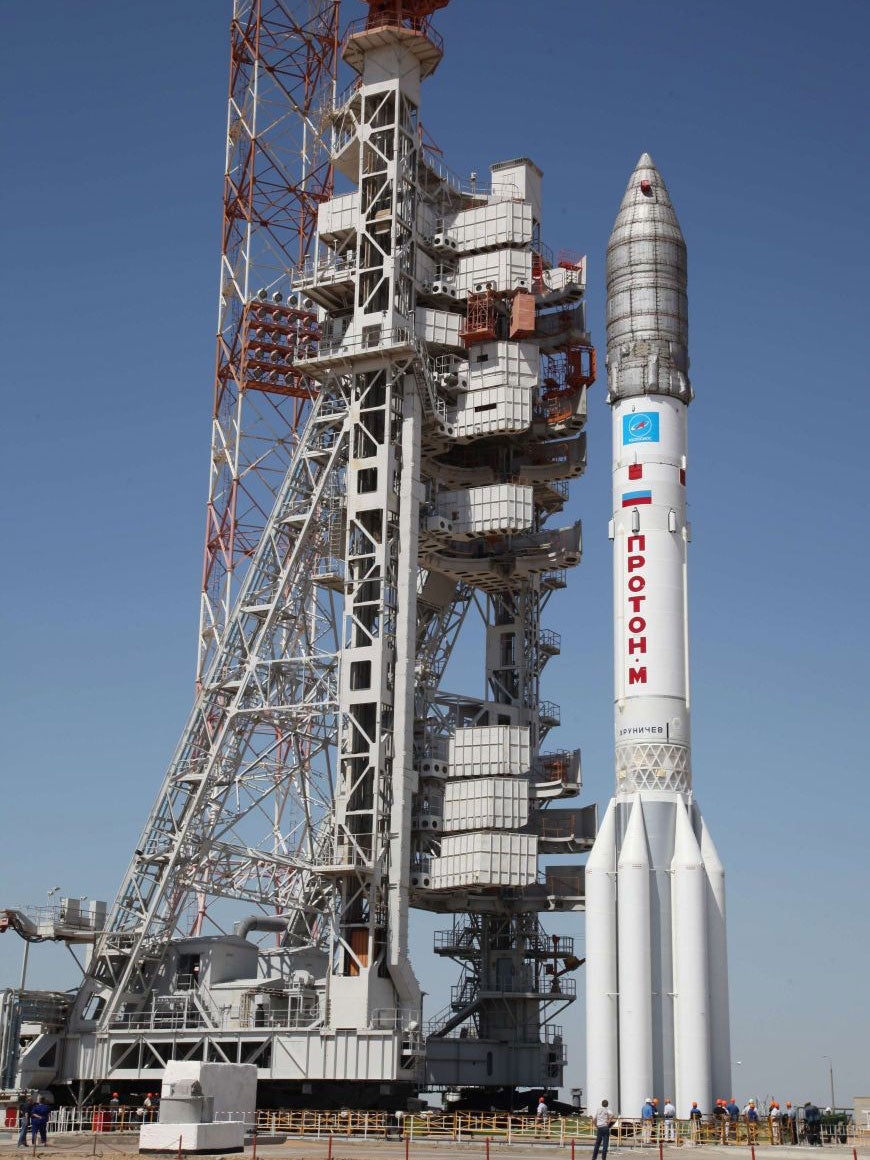Russian satellite launch fails as rocket breaks apart
Footage shows the rocket flying sideways before plummeting to Earth

Your support helps us to tell the story
From reproductive rights to climate change to Big Tech, The Independent is on the ground when the story is developing. Whether it's investigating the financials of Elon Musk's pro-Trump PAC or producing our latest documentary, 'The A Word', which shines a light on the American women fighting for reproductive rights, we know how important it is to parse out the facts from the messaging.
At such a critical moment in US history, we need reporters on the ground. Your donation allows us to keep sending journalists to speak to both sides of the story.
The Independent is trusted by Americans across the entire political spectrum. And unlike many other quality news outlets, we choose not to lock Americans out of our reporting and analysis with paywalls. We believe quality journalism should be available to everyone, paid for by those who can afford it.
Your support makes all the difference.A Russian satellite launch took a bad turn when the rocket carrying it into space failed and brought it crashing back to Earth.
Russia's unmanned Proton-M booster rocket broke apart during its launch from a base in Kazakhstan on Friday, just months after a shake-up in the country's space agency that was meant to boost its image.
It was carrying the most advanced communications satellite ever to be launched by Russia.
The satellite, which aimed to bring affordable internet access to remote areas of the country, disintegrated while falling to the ground.
The rocket stopped functioning about 100 miles above the earth, Roskosmos said in a statement.
A spokesman said the agency is investigating the cause of the failure and that the rocket totally disintegrated in space.
Footage of the launch showed the rocket begin to point sideways about nine minutes after blast-off, then rotating to hurtle back towards the ground.
Parts were found scattered across the far east of Russia, Siberia and even in the Pacific Ocean.
The incident was the second mishap with the Proton-M rocket, which previously burst into flames and crashed after launch.
In October, Russia replaced the Roskosmos chief Vladimir Popovkin, who had failed to deliver on promises to improve manufacturing standards and quality checks, with Deputy Defense Minister Oleg Ostapenko.
Additional reporting by AP
Join our commenting forum
Join thought-provoking conversations, follow other Independent readers and see their replies
Comments